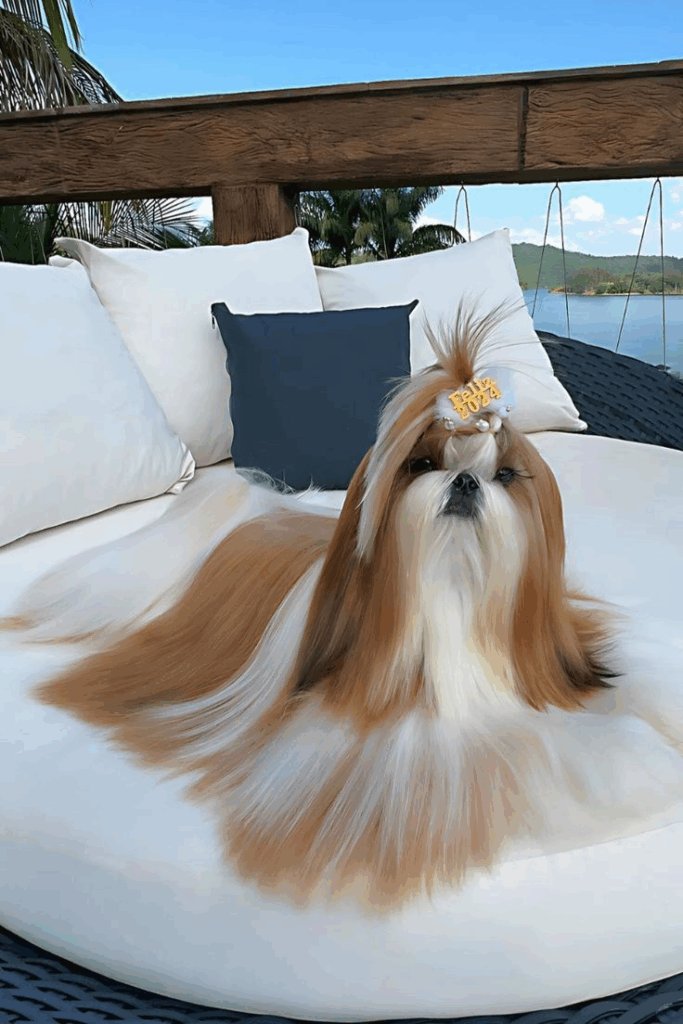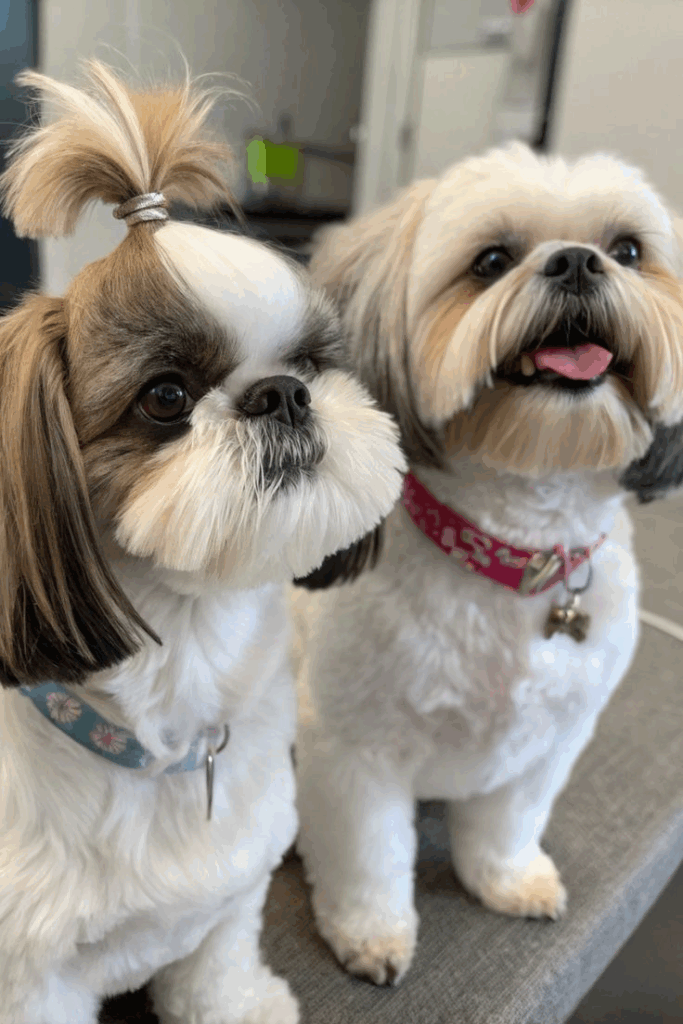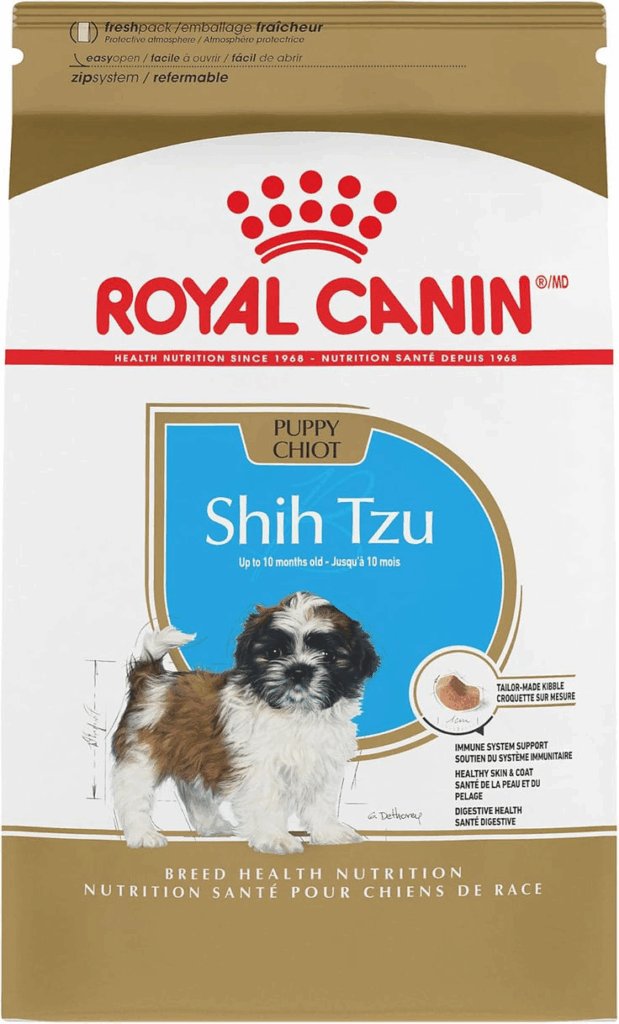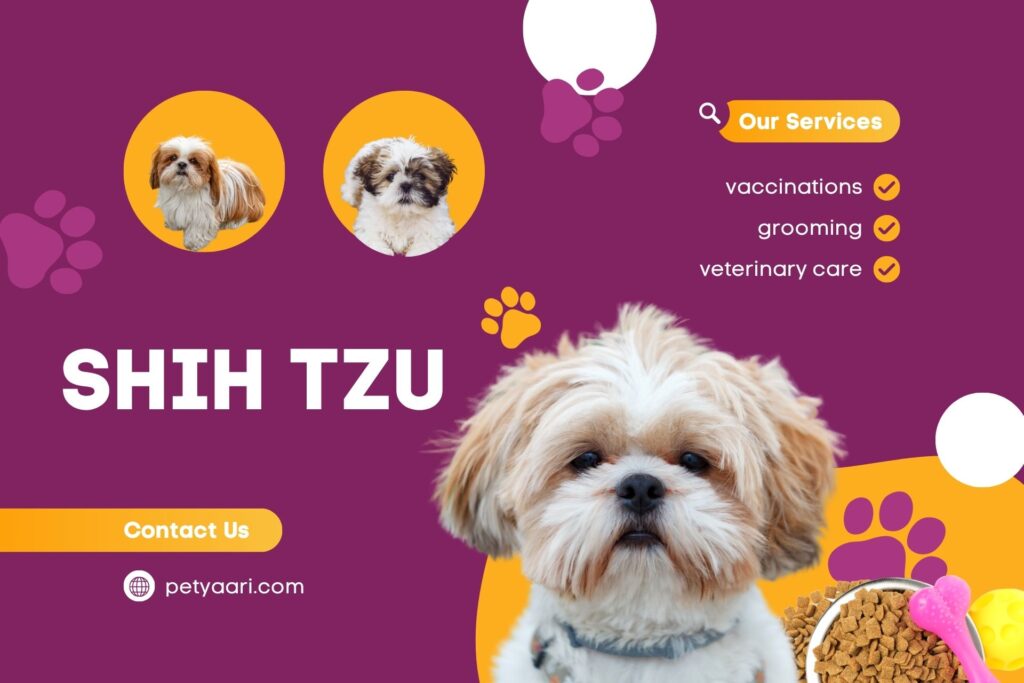Imagine a small, fluffy companion with a regal history and a heart full of devotion, that’s the Shih Tzu. Originating from ancient China, these little dogs were once favoured by royalty.
Today, Shih Tzus still charm families around the world. Their loving and graceful nature makes them special. These dogs are known for their unique looks and friendly nature. Many people in India love them.

Before bringing a Shih Tzu into your home, knowing their temperament and care helps you choose a puppy. They are friendly and affectionate, making them great companions for families and kids. They have unique grooming needs and a special diet. Owners must pay close attention to these requirements. At Petyaari, we offer complete services for your Shih Tzu’s health. This includes check-ups, vaccinations, tests, surgeries, and emergency care.
This article dives into the wonderful world of Shih Tzus in India. It covers their temperament, care needs, and financial factors to consider. No matter if you’re a new owner or a seasoned dog lover, you’ll find helpful tips for a happy life with this lovely breed.
Understanding the Shih Tzu Breed

Shih Tzus are renowned for their loving and playful nature, making them exceptional companions. Their friendly mature allows them to easily adapt into a family, including those with children. They bring joy and laughter to every household they join.
These toy dogs are great for apartment living. They need a little exercise. A simple daily walk combined with indoor playtime can keep them content.
Regular Grooming is a crucial aspect of Shih Tzu care. Their long, soft coats require consistent attention to prevent matting and keep their fur clean and well-maintained.
Health Considerations:
As a brachycephalic breed, Shih Tzus are prone to certain health conditions that owners should be aware of and monitor closely.
Key health concerns are:
- Brachycephalic airway obstruction syndrome, so keep an eye on their breathing health.
- Eye problems and ear infections that need regular vet checks. – Potential issues like luxating patella and hip dysplasia.
For mental stimulation, interactive toys and chew toys are beneficial. Feeding them high-quality wet food helps keep them healthy. Dental chews also prevent periodontal disease.
By understanding and appreciating the unique breed traits of the Shih Tzu, you can ensure that your pet lives a happy and healthy life. This knowledge empowers you to provide the best care and companionship for your Shih Tzu.
Temperament and Personality

Shih Tzus are known for their friendly and loving nature. This temperament makes them great companions for many households. They are playful and smart but can also be independent. Shih Tzus love interacting with their owners. They also adapt easily to different living situations.
Their friendly nature helps them blend into family life and city living since they require little exercise. While they can be obedient with proper training, Shih Tzus may be cautious of strangers. A patient and consistent owner can help them feel more at ease.
Friendly and Affectionate Nature
Shih Tzus are loved for their affectionate and playful nature. These traits make them great pets. They are friendly but can be wary of strangers. This slight aloofness shows their independent side but doesn’t hide their social skills. As a toy breed from Tibet, Shih Tzus fit well into families. They thrive when around their loved ones. These smart dogs love to learn and engage with their owners. Shih Tzu fans cherish their loyal and loving bond.
Compatibility with Families and Children
Shih Tzus may seem like a one-person breed, but they can bond with everyone in the family, including kids. Their calm nature is a good fit for families with older kids who can engage gently. Like all breeds, both Shih Tzus and children should learn to interact respectfully. Adults must supervise when Shih Tzus and young children are together to avoid any harm. Early socialisation is vital for Shih Tzus. It helps them build confidence and feel at ease in social situations.
Considerations for First-Time Owners
Shih Tzus is a popular choice for first-time dog owners. Thanks to its friendly nature and adaptability. Their long, silky coats require regular Grooming, which is a commitment but one that is easily manageable with the right guidance. Feeding them high-quality, breed-specific food is key to their health and vitality. Early socialisation in different settings helps Shih Tzus become well-adjusted pets. They are usually laid-back, but they still need regular walks and playtime. This allows them to stay healthy, both physically and mentally, so they are happy at home.
Care Requirements

Shih Tzus are lovely companions. They need regular care to stay healthy and happy. Their care routine involves regular vet visits for vaccinations and health checks. These visits cost between ₹5,000 and ₹10,000 each year. They do well on premium dog food. This usually costs ₹3,500 to ₹5,000 a month and helps keep them healthy. Because of their flat faces, they can easily overheat. So, exercise in hot weather is not recommended. Their exercise should focus on short daily walks rather than long hikes. Regular Grooming is also crucial for their long coats, costing around ₹1,500 to ₹3,000 monthly. Knowing these care needs helps keep Shih Tzus healthy, happy, and comfortable for family members.
Veterinary Care
Regular veterinary check-ups for vaccinations, dental cleaning, and health screenings are crucial for catching any issues early. For comprehensive support, Petyaari offers a full range of veterinary services, from routine check-ups and vaccinations to advanced diagnostics, surgeries, and emergency care, ensuring your Shih Tzu receives the best possible attention throughout its life.
Grooming Needs
Grooming a Shih Tzu is key to their care due to their long, luxurious coats. These coats need regular maintenance to stay groomed and tangle-free. Daily Grooming helps avoid matting and keeps the coat in good shape. Professional Grooming is recommended to manage their flowing fur. It costs between ₹2,000 and ₹4,000. Regular baths are also important, sometimes needed weekly, to keep their coats clean. After baths, drying thoroughly is crucial to avoid skin problems. The hair grows uniquely from the nose bridge, so a stylish topknot is often needed to keep hair out of their eyes.
Dietary Recommendations

Proper nutrition is key to the health and longevity of Shih Tzus. Their diet should include protein, fats, and essential vitamins and minerals for growth and vitality. Breed-specific foods, like Royal Canin Shih Tzu Adult Dog Dry Food, are great choices. They meet the unique needs of Shih Tzus. The Royal Canin Shih Tzu Puppy formula helps puppies digest food and keeps their coat healthy. This helps set the stage for a lifetime of wellness.
As Shih Tzu’s age, they may eat less. They need food that is rich in nutrients. It should give energy and essential nutrients, even in small portions. It’s also vital to ensure they have access to fresh water at all times. This keeps them hydrated and supports their overall health.
Health Concerns Specific to Flat-Faced Breeds
Shih Tzus are a brachycephalic breed, meaning they have flat faces. This can lead to specific health issues. One common problem is brachycephalic airway obstruction syndrome. It occurs due to small nostrils and compact airways. Symptoms include excessive panting and noisy breathing from extra soft tissue. Narrow nostrils can worsen their breathing difficulties. This makes normal breathing tough for them. To manage these issues, owners need to be very careful, especially in hot weather. This helps prevent respiratory distress.
Shih Tzus can also face skin problems because of extra folds around their faces. Keeping them clean and managing their environment is key. This helps reduce health challenges and ensures Shih Tzus live comfortably.
Exercise and Activity Levels
Shih Tzus have moderate energy levels but specific exercise needs. A balanced routine meets these needs easily. They enjoy short daily walks and indoor playtime. Games with their owners keep them active and happy. Instead of long hikes, Shih Tzus prefer several short, 20-minute walks each day. This helps them stay healthy and prevents obesity and joint problems.
Because of their brachycephalic nature, be cautious on hot days. Their short snouts can cause breathing issues. Regular activities are key for keeping Shih Tzus happy and healthy. They help them stay engaged, both physically and mentally.
Financial Aspects
Shih Tzus are friendly dogs with beautiful coats. They make great pets for families who want to enjoy pet ownership. However, planning your finances is important before bringing one home. In India, the price of a Shih Tzu can vary a lot. This depends on the breeder’s reputation, the dog’s lineage, and where you live. You also need to consider long-term care costs. These include Grooming, food, training, and healthcare. The commitment to a Shih Tzu involves more than just the purchase price.
Factors Influencing Price in India
The cost of acquiring a Shih Tzu in India depends on several key factors. A breeder’s reputation is very important. Reputable breeders care about their puppies health and quality, so they often charge more. This higher price reflects careful breeding and a good environment for the puppies. Another important factor is the puppy’s lineage and pedigree. Shih Tzus from champion bloodlines, especially those registered with the Kennel Club of India (KCI), usually cost more.
Geographical location within India also plays a significant role in pricing. In metropolitan areas like Delhi NCR, Shih Tzus are priced higher due to increased demand and higher living costs. Shih Tzus that serve mainly as companions typically cost between ₹12,000 and ₹25,000. In contrast, show-quality Shih Tzus, bred to meet exhibition standards, can range from ₹50,000 to ₹75,000. This difference shows how breeder quality, pedigree, and location impact the purchase price.
Monthly Maintenance Costs
Owning a Shih Tzu comes with monthly costs that owners should keep in mind for their pet’s well-being. Premium dog food is key for your Shih Tzu’s health, costing 3,500 to ₹4,000 each month. This helps provide the nutrients your small, energetic dog needs. Regular Grooming is also important due to their long coats, costing about ₹1,499 monthly. Grooming prevents mats and tangles, promoting comfort and health.
Routine vet visits are essential for your Shih Tzu’s health. Check-ups can range from ₹1,000 to ₹5,000 each time. They offer preventative care and help catch issues early. Accessories such as collars, leashes, and toys increase costs. You’ll need an initial investment of ₹3,000 to ₹7,000. These ongoing expenses highlight the need for a balanced monthly budget.
Long-Term Financial Planning for Pet Care
Planning for long-term Shih Tzu care involves more than just the purchase price. When budgeting, consider all aspects, such as Grooming, food, and vet care. Monthly professional grooming costs around ₹1,499, and food expenses range from ₹3,500 to ₹4,000.
In cities like Delhi, Mumbai, and Bangalore, prices can be higher. This means you need a bigger budget for buying and caring for your pet in these areas. It’s wise to invest in good pet insurance to handle unexpected healthcare costs. Insurance can reduce financial stress from unexpected vet bills. This lets you focus more on caring for your pet. To prepare for these costs, you’ll you’ll create a loving and stress-free home for your Shih Tzu for its entire life.
Summarising Monthly and Long-Term Costs
A Groomingble owner must budget for ongoing expenses:
- Premium Dog Food: ₹3,500 – ₹5,000 per month.
- Professional Grooming: ₹1,500 – ₹3,000 per month.
- Annual Veterinary Care: ₹5,000 – ₹10,000 for routine check-ups and vaccinations.
- Training Classes: ₹5,000 – ₹15,000 for a course.
- Supplies (Initial Cost): ₹3,000 – ₹7,000 for a bed, leash, toys, etc.
Investing in pet insurance is also a wise decision to manage unexpected veterinary emergencies without financial strain.
Lifespan and Longevity
The Shih Tzu is often called “lion dogs”. Their lifespan is moderate compared to other small breeds. On average, they live between 10 and 16 years. They can live longer with proper care. While the typical lifespan is about 13 years, some Shih Tzus have lived up to 23 years. This shows they can be quite long-lived. Key factors that affect their lifespan are good genetics, a balanced diet, and regular vet visits.
Tips to Enhance Lifespan
To improve the lifespan and quality of life for a Shih Tzu, take some proactive steps. Regular vet check-ups are essential. They help catch issues like respiratory, dental, and eye problems early. These issues are common in the breed. A balanced diet is also vital for their health. It helps prevent obesity, which can shorten their lifespan.
In addition to a nutritious diet, regular exercise is important. It keeps their weight in check and reduces health risks linked to obesity. Dental hygiene is crucial. Chew toys can help keep their teeth and gums clean. They reduce plaque and tartar build-up.
By working with a vet for routine health checks and following these tips, Shih Tzus can lead longer, healthier lives. With proper care, they can sometimes live up to 20 years.
Comparison with Other Breeds
Shih Tzus have a lifespan of 10 to 16 years. This is similar to other toy breeds like the Maltese and Pomeranian. However, they live slightly less than Chihuahuas, which can reach up to 20 years. Medium breeds, such as Dachshunds, can live up to 17.5 years. Shih Tzus still charm us with their unique blend of Tibetan breeds, like the Lhasa Apso and Pekingese.
Shih Tzus are different from utility breeds like Bulldogs. They are friendly and have a history with families and royals. Their long, luxurious coats and small size set them apart from toy dogs. This makes them beloved for their sociable personality and loyalty as family pets.
Frequently Asked Questions
Why are Shih Tzus considered the worst dog?
The idea that Shih Tzus are the “worst” dog is subjective and often stems from misconceptions or specific challenges. Some people may find their high-maintenance grooming needs, potential for stubbornness, or health issues like breathing difficulties (due to their brachycephalic face) challenging. They can also be prone to barking or separation anxiety if not properly trained. However, many owners adore Shih Tzus for their affectionate, loyal, and charming personalities. It depends on the owner’s lifestyle and commitment to meeting their needs.
How to groom a Shih Tzu?
Grooming a Shih Tzu is essential due to its long, flowing coat:
Brushing: Brush daily with a pin brush or slicker brush to prevent matting.
Bathing: Bathe every 2-4 weeks using a dog-specific shampoo. Rinse thoroughly.
Haircuts: Trim every 4-6 weeks, either at home or with a professional groomer. Popular cuts include the puppy cut or teddy bear cut.
Face Cleaning: Clean facial folds daily with a damp cloth to prevent infections.
Ear Care: Check and clean ears weekly to avoid wax buildup or infections.
Nail Trimming: Trim nails every 2-3 weeks to maintain paw health.
Teeth Brushing: Brush teeth daily or at least weekly to prevent dental issues. Use quality grooming tools and consider professional grooming for complex styles.
How long do Shih Tzus live?
Shih Tzus typically live 10-18 years, with an average lifespan of around 12-16 years. Proper care, including a balanced diet, regular exercise, and routine vet visits, can help them live longer, healthier lives.
Are Shih Tzus hypoallergenic?
Yes, Shih Tzus are considered hypoallergenic. Their hair-like coat produces less dander than fur, making them a good choice for some allergy sufferers. However, no dog is completely allergen-free, so spending time with a Shih Tzu before adopting is wise.
Do Shih Tzus shed?
Shih Tzus have minimal shedding due to their hair-like coat rather than fur. While they don’t shed heavily, loose hairs can get trapped in their coat, requiring regular brushing to prevent matting. This low-shedding trait contributes to their hypoallergenic status.
How big do Shih Tzu dogs get?
Shih Tzus are a small breed, typically weighing 9-16 pounds (4-7 kg) and standing 8-11 inches (20-28 cm) tall at the shoulder. Males and females are similar in size, though some males may be slightly larger.
How to trim a Shih Tzu?
Trimming a Shih Tzu requires care to maintain their coat and comfort:
Tools: Use clippers with a guard, grooming scissors, and a comb.
Preparation: Brush thoroughly to remove mats and bathe/dry the dog.
Trimming:
Body: Use clippers with a #4 or #5 blade for a puppy cut, trimming evenly.
Face: Carefully trim around the eyes and muzzle with blunt-tipped scissors for safety.
Legs and Tail: Shape with scissors for a neat appearance, keeping length balanced.
Paws: Trim hair between paw pads for cleanliness.
Safety: Work slowly, avoid sensitive areas, and keep the dog calm. For intricate cuts, consult a professional groomer, especially for show styles.
How many puppies can a Shih Tzu have?
A Shih Tzu typically has 3-4 puppies per litter, though litters can range from 1-8 puppies. Smaller litters are common due to the breed’s small size. Breeding should be done responsibly, with veterinary oversight to ensure the health of the mother and puppies.
